The case of the girl who was hit by a "monster driver" and died: Mother told her son, collapsed at the funeral

2 | 1 Discuss | Share
On November 5, the Investigating Police Agency of Hoan Kiem District, Hanoi City issued a decision to prosecute a case related to a group of teenagers who drove a car and hit a girl who died on the spot at the intersection of Tran Hung Dao - Ba Trieu street.
The police also temporarily detained 10 people and related vehicles. In addition, the investigating agency has expanded the case and verified a number of other subjects.
Previously, at about 0:15 a.m. on November 3, Ms. N.N.Q (born in 1997, living in Hoan Kiem, Hanoi) was driving a parked Honda Vision brand car, stopping to wait for a traffic signal at the intersection of Tran Hung Dao - Ba Trieu (direction from Hanoi station to Hospital 108).
At this time, a group of teenagers driving a motorbike going in the opposite direction on Tran Hung Dao Street to Hanoi station at high speed collided with Ms. Q., causing Ms. Q. to fall on the road. As a result, Ms. Q. died on the spot.
According to lawyer Diep Nang Binh - Head of Lawyer Tinh Thong Law Office, according to Clauses 6 and 11, Article 8 of the Law on Road Traffic 2008, amended and supplemented in 2019, the law strictly prohibits the following acts: Racing, cheering for racing, organizing illegal racing, swerving, hitting hammocks, driving motor vehicles exceeding the prescribed speed, taking the road, overtaking; fleeing after causing t.ai to evade responsibility; when there are conditions, they deliberately fail to help people with traffic t.ai.
Therefore, suppose the authorities identify the subjects with illegal racing, swerving, hammocking, speeding, etc. causing a traffic collision, it can be considered a violation of the law. Depending on the nature and severity of the act, each violator may be administratively handled or criminally handled and compensated for damage (if any).
Regarding the handling of administrative violations
According to Clause 8, Clause 9, Point c, Clause 10, Article 6 and Clause 2, Point b, Clause 4, Article 34 of Decree No. 100/2019/ND-CP (amended and supplemented by Decree No. 123/2021/ND-CP) on sanctioning administrative violations in the field of road traffic and railways.
For people who directly cause t.ai:
Violators may be fined from 10,000,000 VND to 14,000,000 VND. Driving a vehicle swerving or hitting a hammock on roads inside and outside urban areas; driving vehicles in groups of 02 or more vehicles exceeding the prescribed speed, causing traffic t.ai.
A fine of between VND 6,000,000 and VND 8,000,000 shall be imposed for acts of causing traffic t.ai without stopping, failing to remain at the scene, fleeing without reporting to the competent authority.
A fine of between VND 10,000,000 and VND 15,000,000 shall be imposed on illegal racers of motorcycles, mopeds and electric motorcycles.
At the same time, violators are also subject to additional sanctions such as deprivation of the right to use the driver's license from 02 months to 05 months and confiscation of the vehicle.
For other subjects:
Drivers of motorcycles, mopeds and similar vehicles may be fined from VND 6,000,000 to VND 8,000,000 for the following acts: Driving vehicles swerving or hitting hammocks on roads inside and outside urban areas; driving vehicles in groups of 02 or more vehicles exceeding the prescribed speed; did not help the victim.
A fine of between VND 10,000,000 and VND 15,000,000 shall be imposed on illegal racers of motorcycles, mopeds and electric motorcycles.
Violators are also subject to an additional sanction of deprivation of the right to use the driver's license from 02 months to 05 months and confiscation of the vehicle.
(For minors, according to Article 134 of the Law on Handling of Administrative Violations 2012, amended and supplemented in 2022, in case a person from full 14 years old to under 16 years old commits an administrative violation, the form of fine shall not be applied but other sanctioning forms such as warning; confiscation of material evidences and means of violation or alternative measures such as remind; management at home; community-based education.
In case a person from full 16 years old to under 18 years old commits an administrative violation and is fined, the fine level must not exceed 1/2 of the fine level applicable to adults; if they are forced to remit an amount of money equivalent to the value of material evidences and means used in administrative violations into the state budget under the provisions of Clause 1, Article 126 of this Law, the amount remitted into the state budget shall be equal to 1/2 of the value of material evidences and means used in administrative violations. In case there is no money to pay the fine or is unable to take remedial measures, the parents or guardians must do so on their behalf).
Regarding criminal handling
According to lawyer Diep Nang Binh, if the above acts have enough elements to constitute a crime, the person directly causing the t.ai and other subjects can be handled according to Article 260 and/or Article 266 of the Criminal Code 2015, amended and supplemented in 2017. concrete:
According to Article 260 of this Code, which stipulates the crime of violating regulations on road traffic participation, offenders can be subject to a minimum fine of from VND 10,000,000 to a maximum of 15 years in prison. Offenders may also be banned from holding certain positions, practicing certain professions or doing certain jobs for 01 to 05 years.
According to Article 266 of this Code stipulating the crime of illegal racing, offenders can be subject to a minimum fine of from VND 10,000,000 to a maximum of 20 years in prison. Offenders may also be fined from VND 10,000,000 to VND 50,000,000.
(For juveniles, persons aged full 16 years or older shall bear penal liability for all types of crimes. As for the person who dies from full 14 years old to under 16 years old, he or she must bear penal liability for very serious crimes and particularly serious crimes specified in Article 266 of the Criminal Code.
In case a juvenile is sentenced to fixed-term imprisonment, for a person aged between full 16 and under 18 years old when committing the crime, if the applicable law provides for the penalty of life imprisonment or imprisonment, the highest penalty level shall not exceed 18 years of imprisonment; if it is a fixed-term imprisonment, the highest penalty level shall not exceed three-quarters of the imprisonment level prescribed by law;
For a person aged between full 14 and under 16 years old when committing a crime, if the applicable law provides for the penalty of life imprisonment or imprisonment, the highest penalty level shall not exceed 12 years of imprisonment; if it is a fixed-term imprisonment, the highest penalty level shall not exceed half of the imprisonment level prescribed by law - Article 12, Article 101 of the Penal Code).
Regarding compensation for damage
Assuming that the authorities identify the person who directly caused the t.ai, that person must be responsible for compensating for damage to the person or his family members specified in Article 589 (Damage caused by property infringement) and Article 591 (Damage caused by life being infringed upon) of the Civil Code 2015.
(Persons aged full eighteen years or older who cause damage shall have to pay compensation by themselves. If a person under the age of fifteen causes damage but still has a father or mother, the father or mother must pay compensation for the entire damage; if the property of the parent is insufficient for compensation but the minor child causing damage has its own property, such property shall be used to compensate for the shortfall, except for the case specified in Article 599 of this Code.
Persons aged between full fifteen and under eighteen years old who cause damage shall have to pay compensation with their property; if there is not enough property to pay compensation, the parents must compensate the missing part with their property.
Minors, persons who have lost their civil act capacity, persons who have difficulties in cognition and control of acts causing damage and have guardians, such guardians may use the assets of the wards to pay compensation; if the wards have no assets or do not have enough assets to pay compensation, the guardians must pay compensation with their own assets; if the guardian can prove that he is not at fault in the guardianship, he does not have to take his property to compensate - Article 586 of the Civil Code).
The "weird driver" mother made the girl who left in Hanoi regret it, will she be fined for handing over the car to her child? 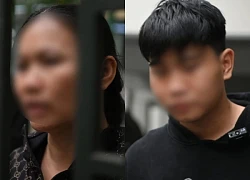 Thiên Di10:38:21 05/11/2024On November 4, the Hoan Kiem District Police (Hanoi) said that the unit had temporarily detained 10 people related to the case of a strange driver causing an accident that caused a girl not to pass at the intersection of Tran Hung Dao - Ba Trieu.
Thiên Di10:38:21 05/11/2024On November 4, the Hoan Kiem District Police (Hanoi) said that the unit had temporarily detained 10 people related to the case of a strange driver causing an accident that caused a girl not to pass at the intersection of Tran Hung Dao - Ba Trieu.

2 | 1 Discuss | Share
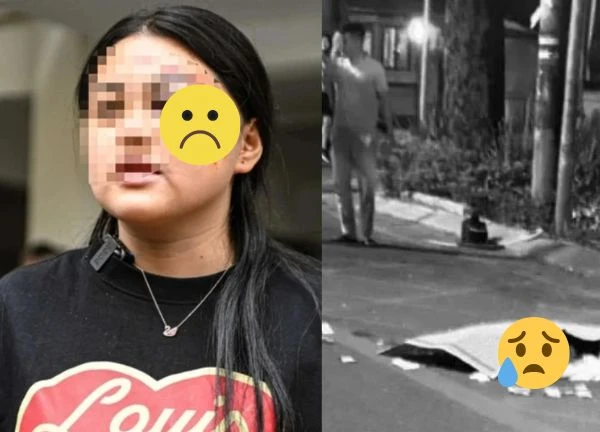
1 | 1 Discuss | Share
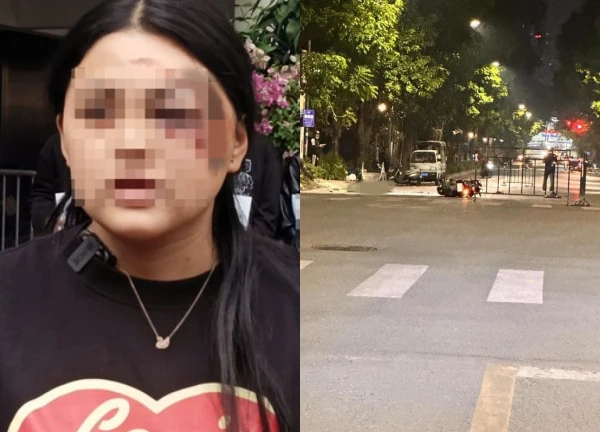
4 | 1 Discuss | Share

3 | 1 Discuss | Share
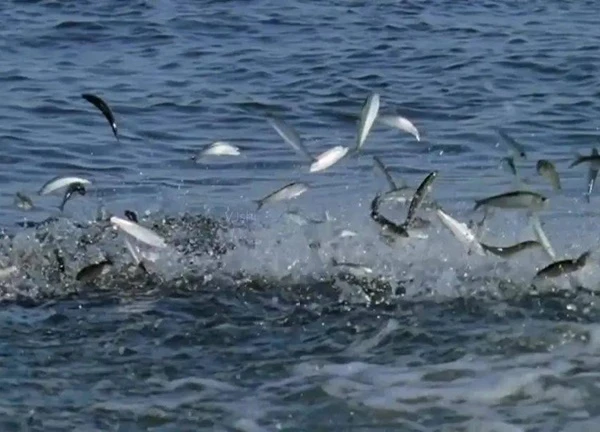
2 | 1 Discuss | Share
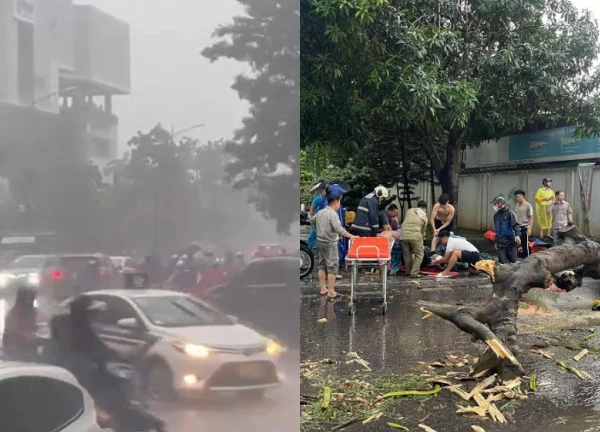
2 | 1 Discuss | Share

1 | 1 Discuss | Share
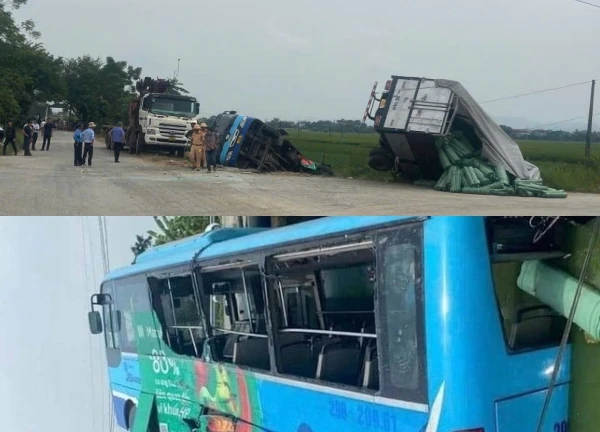
4 | 1 Discuss | Share

3 | 1 Discuss | Share

2 | 1 Discuss | Share
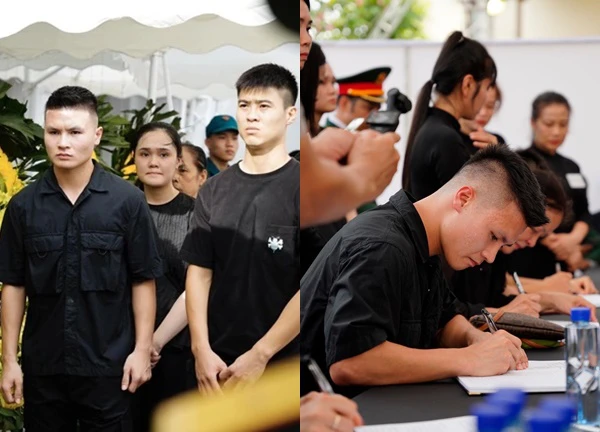
2 | 1 Discuss | Share

3 | 1 Discuss | Share
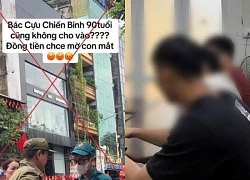
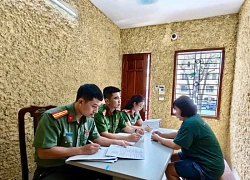
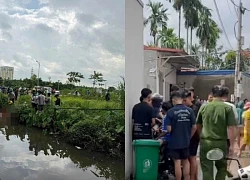
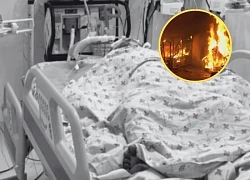
2 | 1 Discuss | Report